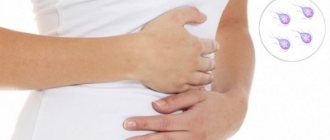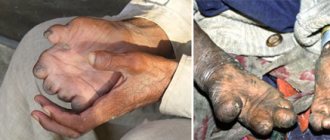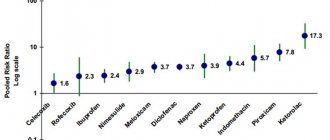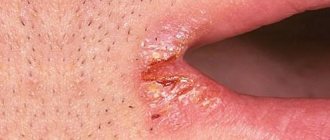Go far, far away, see new places, bask in the hot sun or walk on the bright blue ice of Lake Baikal, plunge into the gentle sea or climb a snowy peak... Traveling gives so many vivid impressions!
Often, when traveling, we change time zones and find ourselves in different climatic zones. But when going on vacation, we don’t always think about the fact that when we travel distances, we risk encountering such a phenomenon as acclimatization. Some might say: this is only scary for children. Unfortunately no. Adults may also suffer from acclimatization. It’s such a shame to get sick on vacation!
Pavel Tkachuk, a diagnostician at the clinic of the First Moscow State Medical University named after I.M. Sechenov, Candidate of Medical Sciences, told us .
Symptoms of acclimatization in adults
Usually the first alarm bells appear on the second or third day after moving. Usually this:
| cardiopalmus | blood pressure fluctuations |
| chills, weakness | headache |
| dizziness and fatigue | sore throat, runny nose |
| sleep disorders: drowsiness, insomnia | gastrointestinal dysfunction: nausea, vomiting, constipation or diarrhea |
| increase in body temperature | irritability, anxiety |
| loss of appetite | deterioration of memory and attention |
How to equip a traveler's first aid kit?
When going on a trip, in addition to traditional luggage, which provides relative comfort on the road and on vacation, you need to think about maintaining your health at the proper level and be prepared for any illness. As you know, anything can happen when you travel, and relying on local pharmacies is not entirely the right decision. After all, the need for medicine can arise far from a populated area and at any time of the day.
This especially applies to drugs that are taken constantly. They should be stocked up in advance for the entire period of the trip. The same applies to the risk of injury and abrasions. In this case, disinfectants and dressings will be urgently needed, which include hydrogen peroxide, brilliant green solution, iodine, as well as cotton wool, bandages and plaster. This entire set should always be at hand.
When traveling, no one is immune from a fleeting cold. After all, you can get caught in sudden rain with a cold wind, get hypothermic while swimming, etc. Here you will need specific drugs of various groups, which include:
- antipyretics;
- from a runny nose;
- for sore throat;
- From cough.
Considering the way of eating in a new country, where both adults and children want to try more local cuisine, and in the case of long hikes they often have to eat food that is unusual for the body, problems with the gastrointestinal tract may arise. Therefore, it is necessary to provide for the availability of medications to normalize the digestion process:
- antispasmodics;
- enterosorbents;
- enzyme agents;
- probiotics and prebiotics.
If you choose a “hiking format” for your vacation or a long trip by car around the country, close contact with nature is possible. Some of its features can cause not entirely pleasant sensations and consequences in a person. And then there is a need for antiallergic drugs that relieve itching after sunburn, insect bites, and reduce swelling caused by flora aromas that are unusual for a city dweller. The selection of such drugs should be carried out individually, in consultation with a doctor or pharmacist.
In addition, purely preventive remedies, for example, against motion sickness, should be added to the first aid kit.
When collecting a first aid kit, you need to adhere to generally accepted rules:
- The expiration dates of medications must be checked;
- drugs are grouped by their purpose to make them easier to find;
- On top are placed items intended for emergency care (for sudden pain, injuries, etc.).
Along with your medications, you should include a thermometer, a pair of pipettes, scissors, wet wipes, antiseptic hand spray, and water to take your pills with.
Where is adaptation more difficult?
Before going to the beach, where the southern sun is bright, sunbathe first at home. This will cause less harm to the skin. Photo: lori.ru
On the sea
What is more difficult for us: climate change or time zone change? According to experts, the second. For example, a flight from Moscow to Vladivostok threatens greater consequences than from Murmansk to the Black or Azov Sea.
Adaptation at sea has its own characteristics. Increases the likelihood of heatstroke and overheating. We go to the sea to sunbathe and swim. So in the first days you need to be more careful, not to get sunburned, and not to overdo it with water procedures. Don't forget about sunscreen and hats. Walk when it's not hot, use air conditioning. Drink more water.
To protect your skin from burning and yourself from heatstroke, it was worth sunbathing at home in advance - if possible. For example, at the dacha.
Typically, acclimatization in adults lasts from two to seven days.
Resorts where the climate is easier to tolerate
Kaliningrad
Baikal
Sea of Azov
Resorts of Caucasian Mineralnye Vody: plan a trip for the summer!
The best and most fertile time for relaxation is summer.
This can be fully experienced at the resorts of Caucasian Mineral Waters. Everything here heals and restores strength: special programs in the sanatoriums of Pyatigorsk, Essentuki, Zheleznovodsk and Kislovodsk, unique mineral water, warm summer air and stunning nature. This can be said about all four resort towns of the CMS. Find out about the features of summer holidays in each of them, choose and plan your summer trip now! Plan your trip
After the sea
Doctors say: acclimatization is not as scary as the body’s reverse adaptation. There is also reacclimatization! When you return home, the body inevitably begins to rebuild its routine and rhythms again. Here, in addition to the symptoms listed (they are repeated), depression can also set in: the vacation is over, it’s time to go to the office. It happens that the more comfortable it was on vacation, the harder it is physically and mentally to adapt back. Therefore, try to plan your return so that there are two or three days left before going back to work.
In the mountains
At the first signs of acclimatization in the mountains, you should immediately go down.
Photo: lori.ru Acclimatization in the highlands is a separate story. The main factors at play here are low atmospheric pressure and insufficient oxygen in the air. At an altitude of more than two thousand meters, oxygen starvation may occur. The higher the altitude, the more likely the occurrence of so-called mountain sickness. Its symptoms:
- dyspnea,
- noise in ears,
- dizziness and headache,
- weakness, every movement is difficult,
- cardiopalmus.
If symptoms appear, lifting should be stopped. It is better for the patient to go down lower; he is advised to rest in a warm place, drink plenty of fluids, and in severe cases, additional oxygen supplementation. At the same time, you should not overeat, you should rely on sour and low-fat foods, vitamins and medications - as prescribed by the doctor.
When traveling in the mountains, it is important to follow the rules: do not climb more than 500 meters per day. After the ascent, take a few days to acclimatize.
Holidays in the mountains
By bus
Traveling by bus makes it easier for you to acclimatize due to the gradual change of environment.
Photo: lori.ru According to doctors, traveling by bus or train is more useful in terms of preventing acclimatization. You gradually change time zones and climate, which is more comfortable for the body.
Therefore, for adults, especially the elderly, bus tours are doubly beneficial: they are both more affordable in terms of cost and less harmful to health.
Airplanes place the greatest stress on the body. But there are tricks here too: you can choose the most favorable time for the flight. Traveling east? Fly in the evening to arrive in the morning. Sleep on the plane. To the west? Try to fly out in the morning. And try not to fall asleep on the plane.
Classification
Depending on how exactly a person tolerates the restructuring of the body to new conditions, three types of acclimatization reactions are distinguished:
- Favorable – the body immediately adapts to the changes that have occurred, and practically no negative reactions occur.
- Relatively favorable - after a person moves, short-term changes occur in his body, which are expressed by short-term negative manifestations.
- Unfavorable (disadaptation) – the body cannot adapt to new conditions. The main factors determining the development of disadaptive reactions: age, chronic diseases, weather lability, increased contrast of climate change.
Depending on the type of acclimatization, the following types are distinguished:
- Thermal – manifests itself due to too high temperatures and humidity, as well as excessive solar radiation.
- Cold - develops due to low temperatures, lack of sunlight, strong magnetic storms.
- High altitude – develops as a result of reduced oxygen concentrations at altitude, which causes a person’s hemoglobin and other changes to occur in the body.
When to see a doctor
With the telemedicine application, you will be in touch with doctors anywhere in the world.
Photo: pixabay.com Do not underestimate acclimatization, especially if you have chronic diseases. A decrease in immunity during the restructuring of the body can aggravate them. Elderly people should not suddenly change climate or time zones without first consulting with their doctor. In men after 35-40 years of age, the risk of heart attack and stroke increases. Acclimatization can lead to serious pressure surges. Adaptation can develop into a hypertensive crisis, an attack of angina, or acute infectious diseases.
If you have a high temperature, your health has suddenly deteriorated, your headache and palpitations do not go away, you should immediately consult a doctor!
Telemedicine services will help you understand whether you urgently need to call an ambulance or can get by with symptomatic treatment. A special application is downloaded and installed on the smartphone. To contact doctors, you only need Internet access; your location does not matter.
Menstruation after climate change
Often in women, acclimatization is accompanied by menstrual irregularities. This could be a delay or, conversely, premature menstruation. There is nothing wrong with this: since our body lives according to cyclical processes, if they are disrupted, the cycle becomes irregular and goes astray. The main thing is to monitor your current condition, and if it is not accompanied by symptoms other than ordinary weakness and malaise, you can live calmly, understanding that the disruption in the cycle is temporary and does not pose any danger.
Traditional methods of treatment
Of course, avid travelers have their own recipes for dealing with acclimatization.
Tea and juices are the best drinks in the first days of vacation if you want to easily endure a different climate. Photo: pixabay.com
- Taking tinctures of ginseng and eleutherococcus . These are plant adaptogens, they reduce sensitivity to climate change and time zones. But they should also be taken after consultation with a doctor - and carefully read the instructions.
- Proper nutrition is important . More vegetables, fruits, fresh salads, grain dishes, fish and nuts. It is worth eliminating alcohol in the first days after changing places.
- To prevent altitude sickness, some drink beetroot juice : it improves the functioning of blood vessels when there is a lack of oxygen. A natural energy drink, rich in nitrates (which in this case is only beneficial), supplies oxygen to the muscles, including the heart.
List of sources
- Belchenko L.A. Adaptation of humans and animals to hypoxia of different origins. Soros images. magazine, T.7, No. 7. 2001
- Voronin N.N., Zaletaeva T.A., Kandror I.S., Matyukhin V.A., Ovcharova V.F., Ushveridze G.A. Acclimatization // Great Medical Encyclopedia: 30 volumes / chapter. ed. B.V. Petrovsky. — 3rd ed. - Moscow: Soviet Encyclopedia, 1974. - T. 1. A - Antibiosis. — 576 p.
- Human physiology in high altitude conditions: A guide to physiology. Ed. O.G. Gazenko. – Moscow, Nauka, 1987, 520 p.
Prevention of acclimatization in adults
1. Plan your vacation carefully. If you have a long-distance flight, let your stay in place be at least two weeks.
2. All activities : long trips, excursions, etc. plan for the second week of your stay. In the first days there is minimal load.
3. Play sports and exercise. This really reduces the likelihood of difficult acclimatization. The swimming pool, sauna, and fitness are good both before and after your vacation.
Prepare in advance for a long trip: jogging in the fresh air and fitness classes are good. Photo: pixabay.com
4. Two weeks before the trip, with the consent of the doctor, you should start taking vitamins , A, C and E are especially useful.
5. If the trip involves a serious shift in time zones, you can start preparing a week in advance: adjust your schedule to the time of the place where you will go. If you go east, try to get up earlier in the morning, if you go west, on the contrary, later. At least for half an hour or an hour.
During pregnancy
Provided she is in good health and has no problems during pregnancy, the expectant mother can travel until the 38th week. If a woman feels normal, then acclimatization usually takes 2-3 days and goes away like a mild cold . The temperature may rise slightly and nasal congestion may appear. In this case, the unpleasant symptoms will be relieved by Paracetamol , nasal drops based on sea water. If you have digestive problems, you can take activated charcoal .
What else is useful to know
If you get sick on vacation: quick ways to recover
A child gets sick in the car: how to help your baby on a trip
Let's go "to the waters": choosing the best thermal springs
show more
Acne due to climate change
Also an unpleasant phenomenon, which is less common than temporary menstrual irregularities. Rashes are often observed during a sudden change in climate - for example, during a trip to the ocean or sea. Most likely, we are talking about the so-called solar dermatitis. If you are afraid of rashes, stock up on anti-allergy medications and light cream in advance. People with problem skin are advised to consult a dermatologist before traveling to distant countries. The doctor will definitely advise which tablets or creams you need to take with you on vacation.
Preventing Diarrhea When Traveling
Unfortunately, quite often both single travelers and families suffer from loose stools and other gastrointestinal disorders caused by ingestion of food or water contaminated with bacteria, viruses, or simply very different in the composition of salts and impurities from our usual drinking water. This problem is especially common in developing countries, where the following measures should not be neglected:
- Do not drink tap water, even when brushing your teeth;
- It is unacceptable to consume unpasteurized milk;
- Do not use ice made from tap water;
- Avoid eating unwashed fruits and vegetables;
- Do not eat raw seafood, as well as meat that has not undergone sufficient heat treatment;
- Don't buy food from street vendors.
If you are very hot on a trip, it is better to buy bottled water and hot drinks - coffee or tea. Before going on vacation, consult your doctor about ways to prevent digestive disorders. One of the drugs that can be used to treat and prevent intestinal dysbiosis is Acipol. It helps restore microflora, cope with unpleasant symptoms and strengthen the immune system. Live lactobacilli Acipol® are resistant to the acidic environment of the stomach and the action of bile acids, therefore they are able to reach the main point of application - the intestines. Lactobacilli Acipol contribute to the restoration and growth of the intestinal microflora, and the polysaccharide of kefir protein has an immunomodulatory effect aimed at strengthening the body's defenses.*
Acipol capsules should be stored in the refrigerator to preserve the strength of beneficial bacteria.
The benefits of the sea for children
Coming to the sea improves human health. Doctors have found that the composition of sea water is as close as possible to the composition of human blood. Salts and minerals of sea water are quickly absorbed into the body through the pores and have a beneficial effect on all organs and systems of the body:
- iodine helps normalize metabolic processes;
- potassium strengthens the cardiovascular system;
- calcium structures bone tissue;
- magnesium strengthens the immune system;
- bromine calms the nervous system.
In addition to the above, how is the sea beneficial for children? Sea water helps remove toxins from the body and activates all life processes. Positive emotions and a lot of pleasant sensations are an additional bonus from swimming in sea water.











